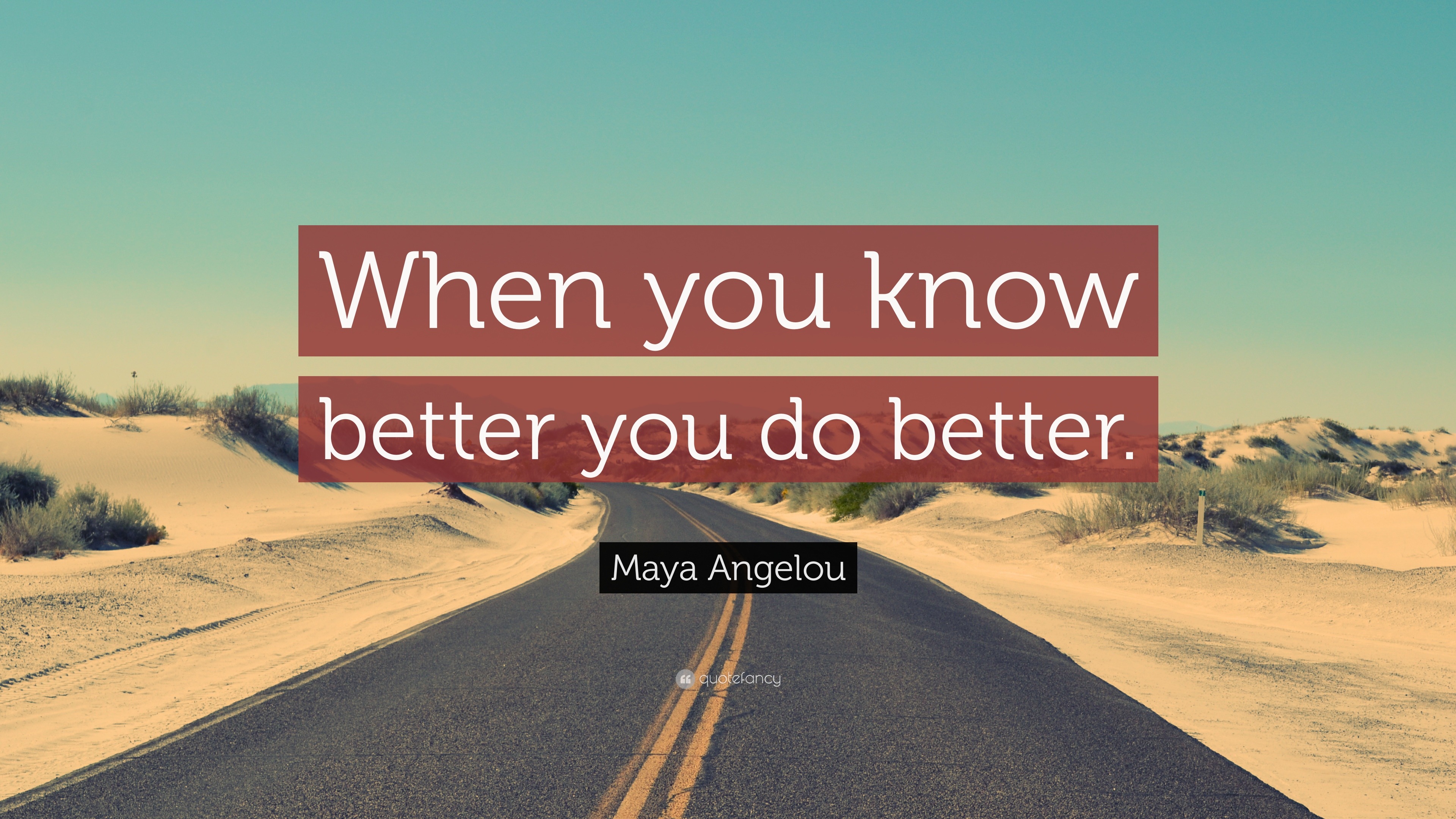
Maya Angelou Quote “When you know better you do better.”
Plain meaning: "ought to" When I say that "you better" do something, I mean that it is what you ought to do. There is a strong expectation that you will do it. The idiom is used in reference to a verb. In your example, the verb and its object ("think that") are left off, since it was just stated and doesn't need to be repeated.
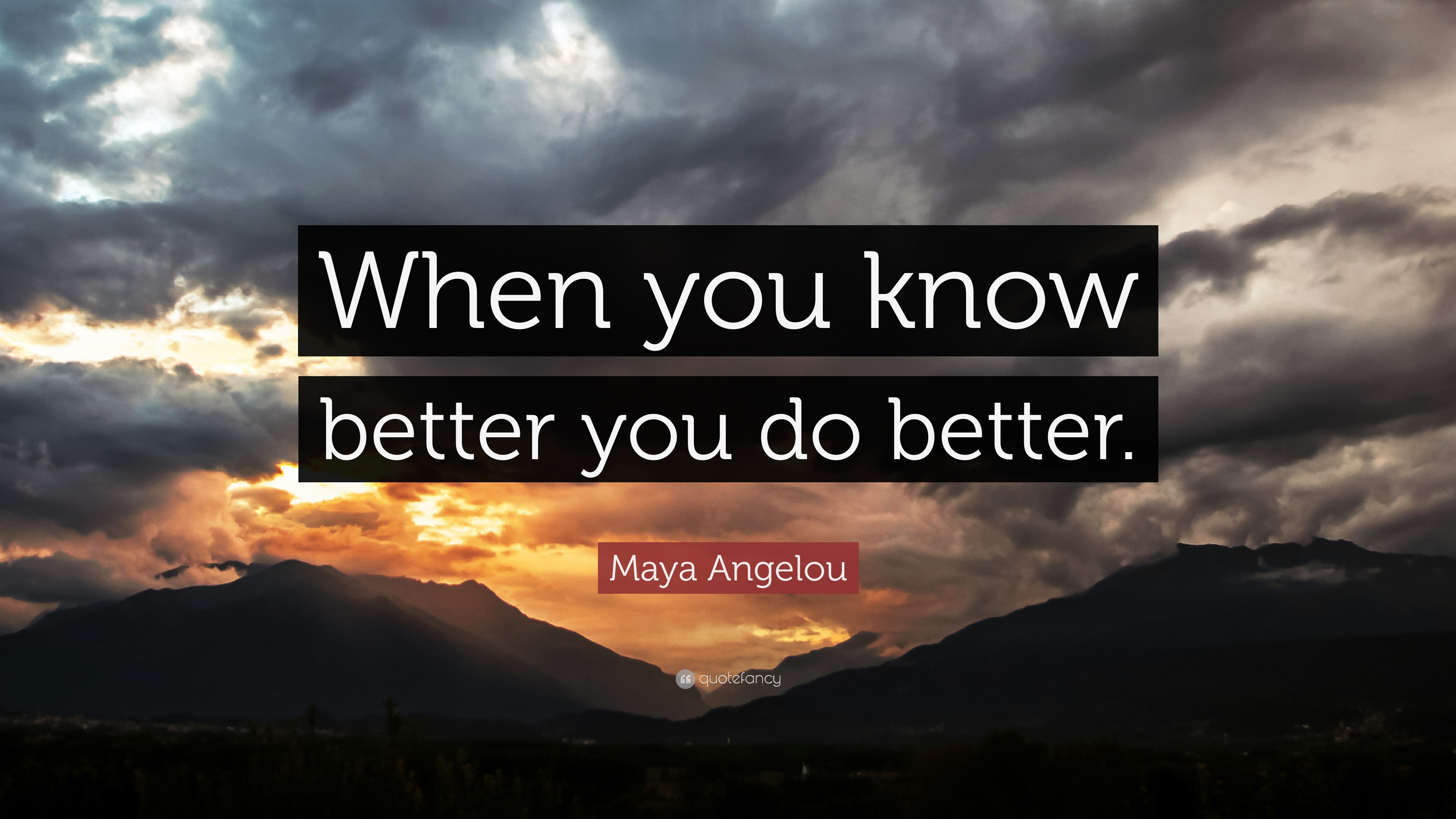
Maya Angelou Quote “When you know better you do better.”
• Nowhere should the coat be tight, so it is better to buy a size too large rather than too small. • In effect, then, chapter 11 says it is better to keep a firm running than to honour debt agreements. • Sometimes it is better to let the children have free time when they just run around in the garden or hall.

"Lion or gazelle you would better be running full quote" Poster by Redbubble
It would be a bad idea for him to come. Had better is always followed by a verb in the infinitive without 'to': You had better BE on time. You must or should be on time. Had better is ALWAYS formed from the auxiliary verb 'have' in the past simple ('has better' or 'will have better' do not exist!). She had better be ready for next week's meeting.

"Lion or gazelle you would better be running full quote" Photographic Print by
"We're gonna fight for much better health care than Obamacare. Obamacare is a catastrophe. Nobody talks about it. You know, without John McCain, we would have had it done," Trump said in a.

"Had Better" vs. "Would Better" in the English grammar LanGeek
you would better | English examples in context | Ludwig High quality example sentences with "you would better" in context from reliable sources - Ludwig is the linguistic search engine that helps you to write better in English

"Lion or gazelle you would better be running full quote" Framed Art Print for Sale by
65.7k 10 151 222 asked Jan 12, 2014 at 18:50 Lion King 119 2 2 8 7 Yes, there is a difference. In the idiom you'd better VP, you'd represents you had, and not you would. You can also say you would, but not normally before better, which is the idiom. That's why they don't match.
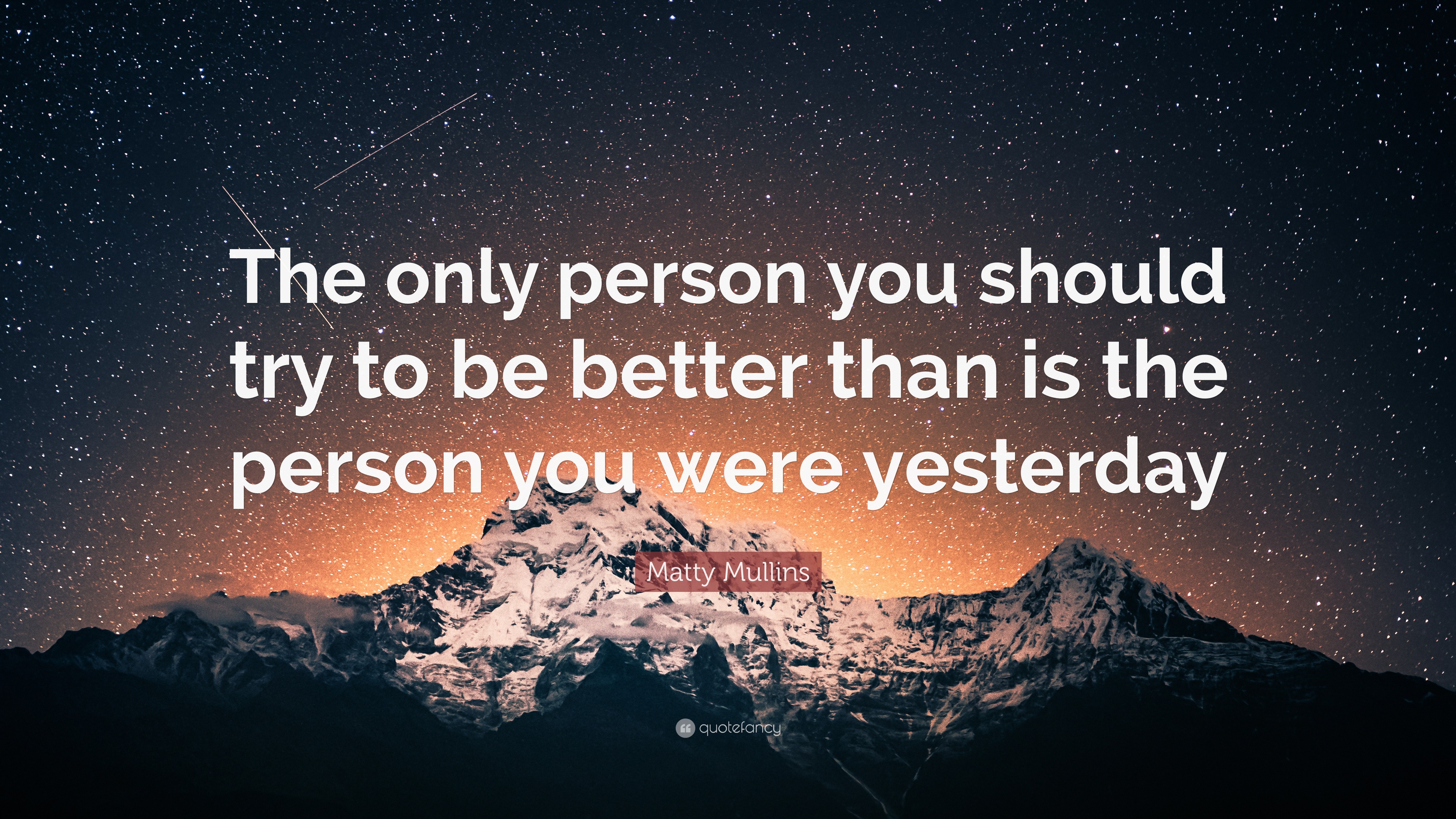
Be Better Than You Were Yesterday Quote The Only Person You Should Strive To Be Better Than Is
In Virgil's Aeneid, the epic poet conversationally writes "Varium et mutabile semper femina." In case you're a little dusty on your Latin, that translates to the popular, modern-day adage.

If you are a lukewarm believer you would better repent Citas Quotes Citações Citations
Saying to someone "you'd better ___" is a very strong and direct way of telling them what to do. Here are some situations where you can use "you'd better ___": If you're a parent, you can use it when telling your children what to do. You use it when you're fighting with someone.
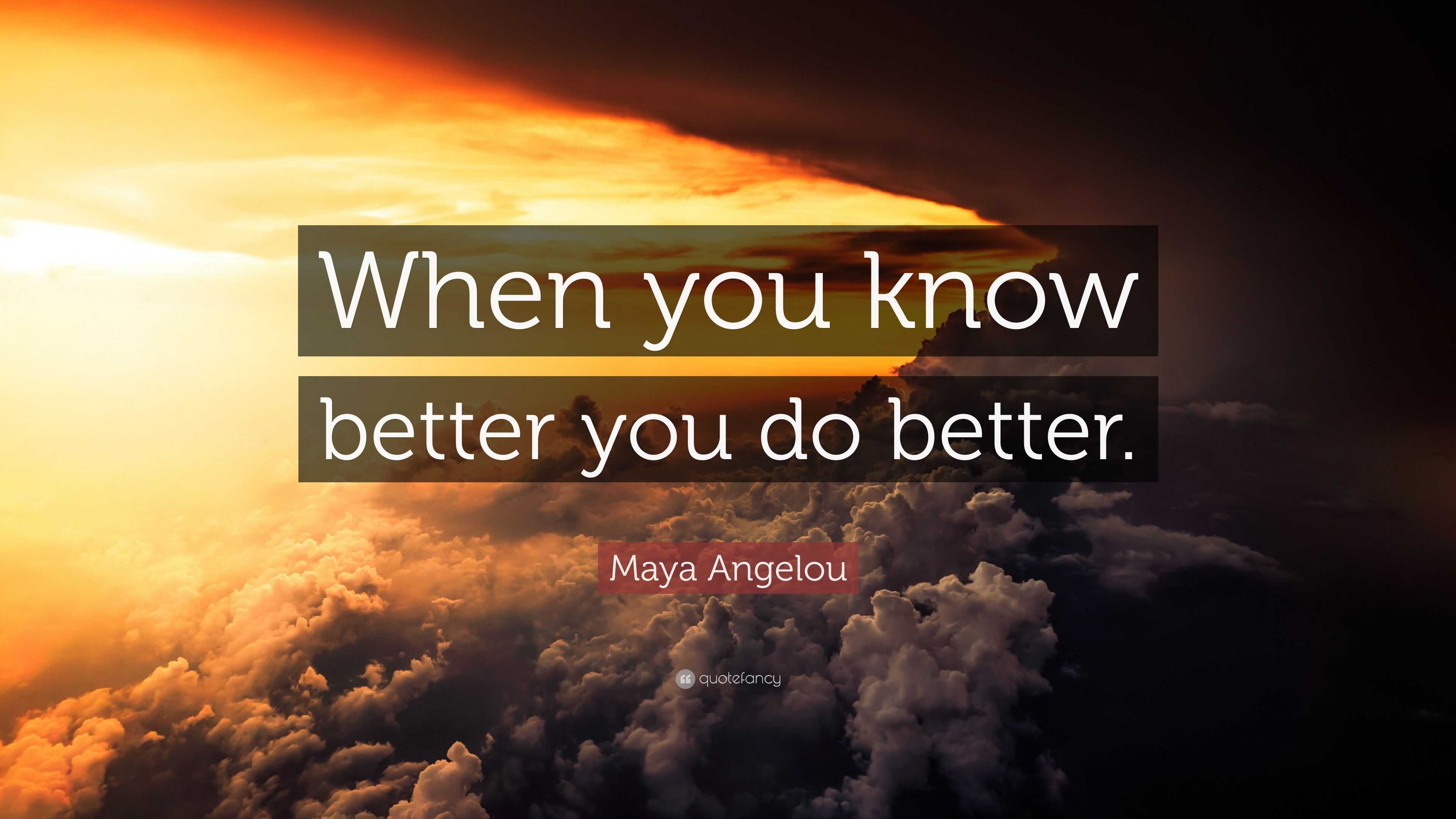
Maya Angelou Quote “When you know better you do better.”
"I'd better" or "it would be better"? Ask Question Asked 8 years ago Modified 1 year, 3 months ago Viewed 33k times 7 I wrote the following question in another StackExchange website: If I want to save and retrieve an object, should I create another class to handle it, or it would be better to do that in the class itself? Is it better to say it as:
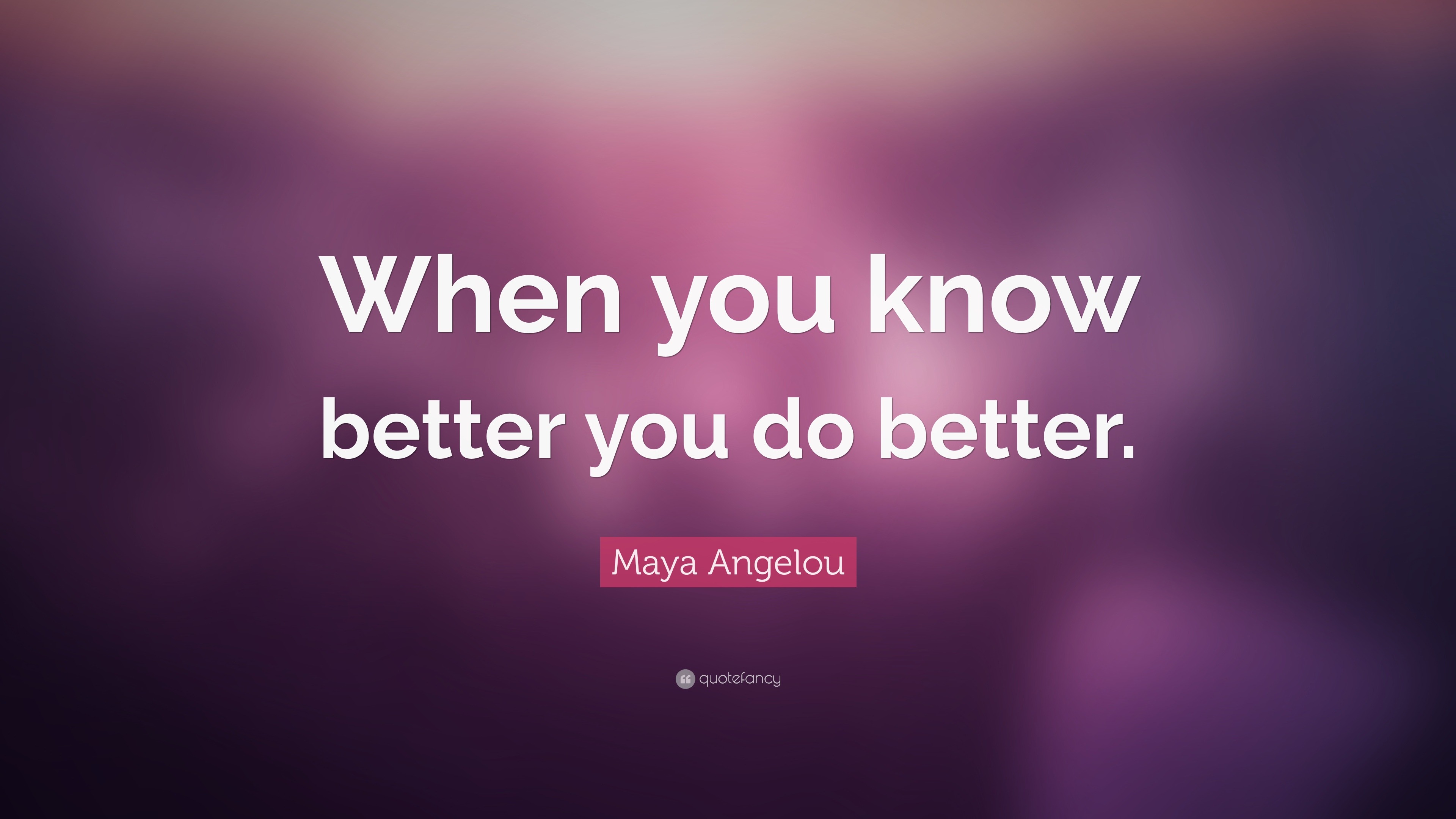
Maya Angelou Quote “When you know better you do better.”
Correct usage of modal verbs had better, I'd better, I'd better not & would better are very important in Spoken English conversation. I'd better, Had better.
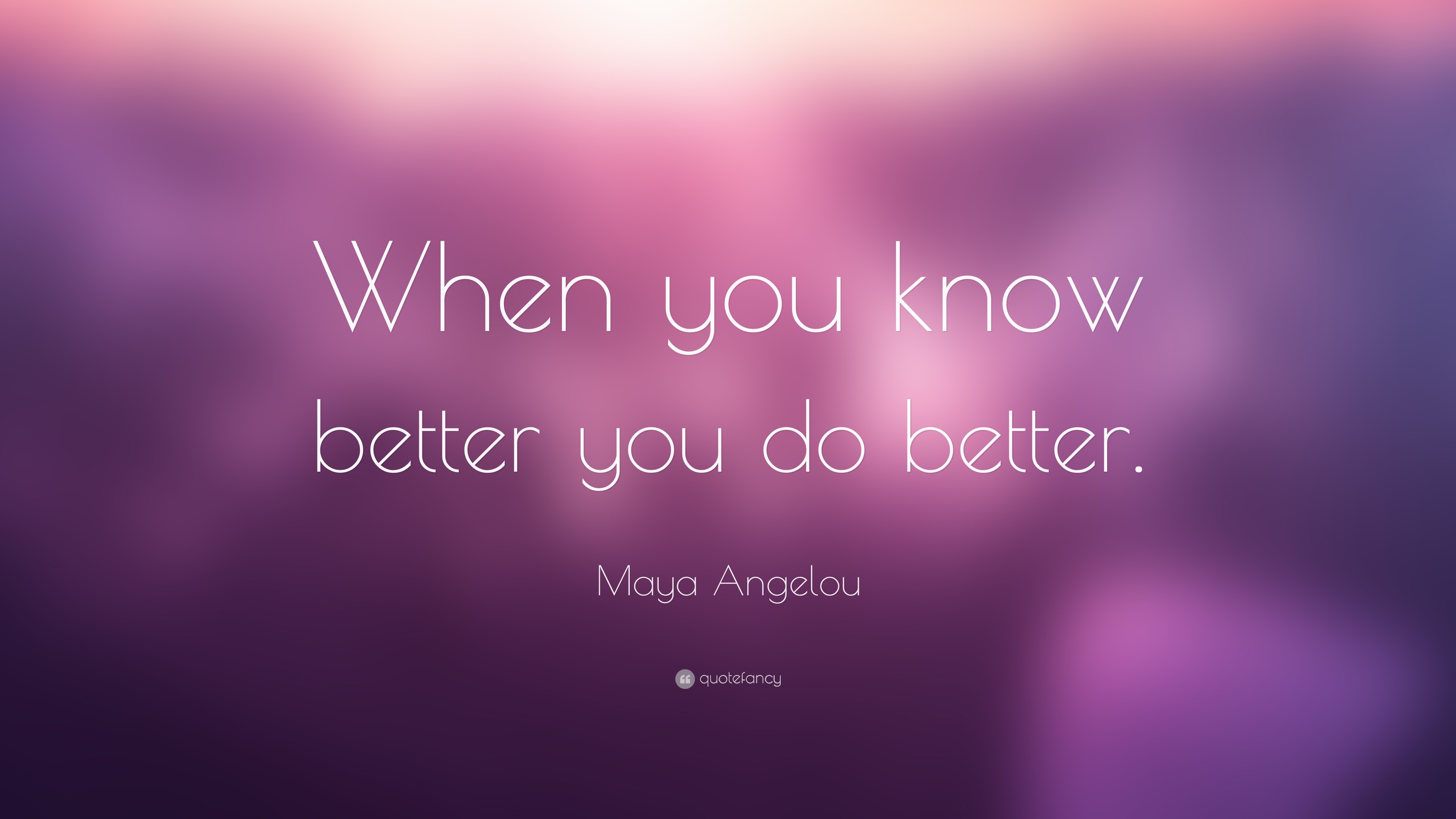
Maya Angelou Quote “When you know better you do better.”
' Had better ' is the correct phrase. ' Would better ' does not exist but it is often confused by learners as subject + would can be contracted into subject + 'd. The same contraction happens with ' had better ' and therefore some learners make this mistake. Had better 'Had better' is counted as a ' semi-modal verb .'

"Lion or gazelle you would better be running full quote" Framed Art Print for Sale by
You would better. 正確な文法的な表現としては、「You would better」は存在しません。正確な形は、「You had better」です。ただし、スラングや非公式の文脈では、「You better」のように短縮された形で使われることがあります。 関連する語彙 Should (do something)

When morning comes, you would better find yourself saying... Picture Quotes
That's a big difference. "Empathy is biased," the psychologist Paul Bloom writes. It's something we usually reserve for our own group, and in that sense, it can even be "a powerful force.

Maya Angelou Quote “When you know better you do better.”
Perhaps it is meant as the English slang phrase, "You'd better", which is actually a conjuction of "You" and "had", rather than "you" and "would". "You'd better" is used in context if Person B is obligated to do something for Person A, like give money back. Person A would say "You'd better give me my money back". It usually implies "or else.

Being a better you
How to Remember the Difference. Use "should" to say that something is the right thing to do; use "would" to talk about a situation that is possible or imagined. So, add another modal, such as "could," to the sentence to see if it still makes sense. For example, you could say:

If you improve by 1 every day, within a year you'll have improved by 365 Improve Yourself
Had better is a strong expression. We use it if we think there will be negative results if someone does not do what is desired or suggested: She'd better get here soon or she'll miss the opening ceremony. Spoken English: Sometimes people say had best instead of had better, especially in informal speaking.